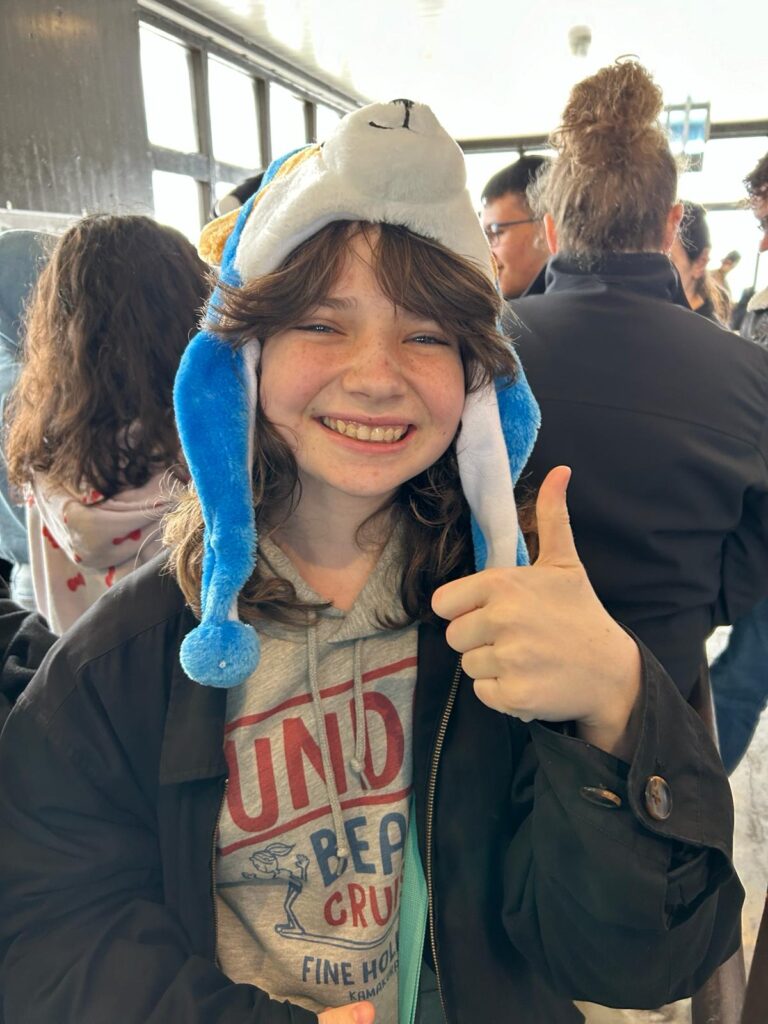We’ve written before about how family vacations can be a delightful yet challenging experiences. On a recent webinar organized by the advocacy organization CHADD (Children and Adults with Attention-Deficit/Hyperactivity Disorder), Cheryl Gedzelman and Dr. Teri Bullis shared valuable tips on making the most of trips. Additionally, they discussed the importance of understanding ADHD, and it’s possible impact on travel for neurodiverse families, highlighting how proper planning and awareness can enhance the vacation experience for everyone.
Pre-Trip Planning
1. Set Clear Expectations
(see our tips on family meetings here)
Before setting off, gather the family to discuss everyone’s desires and expectations. This helps create a shared vision and avoids disappointment. Consider questions like:
- What activities does each person want to do?
- Are there must-see attractions?
- What are everyone’s relaxation needs?
2. Create a Flexible Itinerary
(see our tips on visual guides)
 While planning is essential, flexibility is key. Draft an itinerary that includes major activities and downtime, ensuring structure without feeling overly rigid.
While planning is essential, flexibility is key. Draft an itinerary that includes major activities and downtime, ensuring structure without feeling overly rigid.
Tips for a balanced itinerary include:
- Allocating time for spontaneous adventures.
- Including a mix of activities to cater to different interests.
- Scheduling regular meal breaks to prevent hangry moment.
During the Trip
Open Communication
Maintaining open lines of communication is crucial. Regularly check in with each family member to gauge their feelings and needs. Techniques for effective communication include:
- Daily family meetings to review the day and plan ahead.
- Encouraging everyone to voice their opinions respectfully.
- Practicing active listening to show empathy and understanding.
Stay Positive
A positive attitude can make a significant difference. Focus on the good moments and handle challenges with grace. Strategies for positivity include:
- Creating a gratitude journal where each family member writes down daily highlights.
- Celebrating small victories and fun moments.
- Using humor to diffuse tense situations.
Handling Stress
Take Breaks
- Ensure there’s downtime for rest and relaxation. Over-scheduling can lead to burnout, so incorporate breaks into your day. Ways to ensure adequate rest include:
- Scheduling quiet times in the itinerary.
- Choosing accommodations with comfortable amenities for unwinding.
- Encouraging naps or solo relaxation times for each family member.

Have Contingency Plans
- Be prepared for the unexpected. Whether it’s a rainy day or a missed reservation, having backup plans can save the day. Ideas for contingencies include:
- Packing a travel-size game or activity kit for downtime.
- Researching indoor activities as alternatives to outdoor plans.
- Keeping an emergency kit with essentials like snacks, first-aid supplies, and entertainment.
Practice Self-Care
- Parents often overlook their own needs. Remember that your well-being is crucial for the family’s overall happiness. Self-care tips include:
- Taking turns with your partner to have personal time.
- Engaging in activities you enjoy, even if it’s a short walk or reading time.
- Staying hydrated, eating well, and getting enough sleep.
Manage Conflicts
Family trips can lead to disagreements. Handle conflicts constructively by:
- Setting family rules for respectful behavior.
- Mediating disputes with a calm and fair approach.
- Encouraging problem-solving and compromise.
Understanding ADHD on Family Vacations
Families with members who have ADHD and other forms of neurodiversity face unique challenges on vacations. Cheryl and Dr. Bullis emphasized the importance of:
Routine and Structure
- Maintaining a consistent routine helps manage ADHD symptoms. Try to stick to regular meal and sleep times, even when on vacation.
Clear Communication
- Explaining the itinerary and what to expect can help reduce anxiety. Use visual schedules if needed to make the plan clear and accessible.
Patience and Flexibility
- Be prepared for changes and be patient with each other. Flexibility in plans can accommodate the varying needs and energy levels of family members with ADHD.
Activities and Engagement
- Choose activities that cater to the interests and energy levels of your family members with ADHD. Engaging and interactive activities can help keep them focused and happy.
By following these useful tips, families can transform potential vacation stress into a memorable and joyous experience. A well-planned trip, coupled with flexibility and positive communication, can make all the difference. For more detailed insights, watch the full video by Cheryl Gedzelman and Dr. Teri Bullis here.


